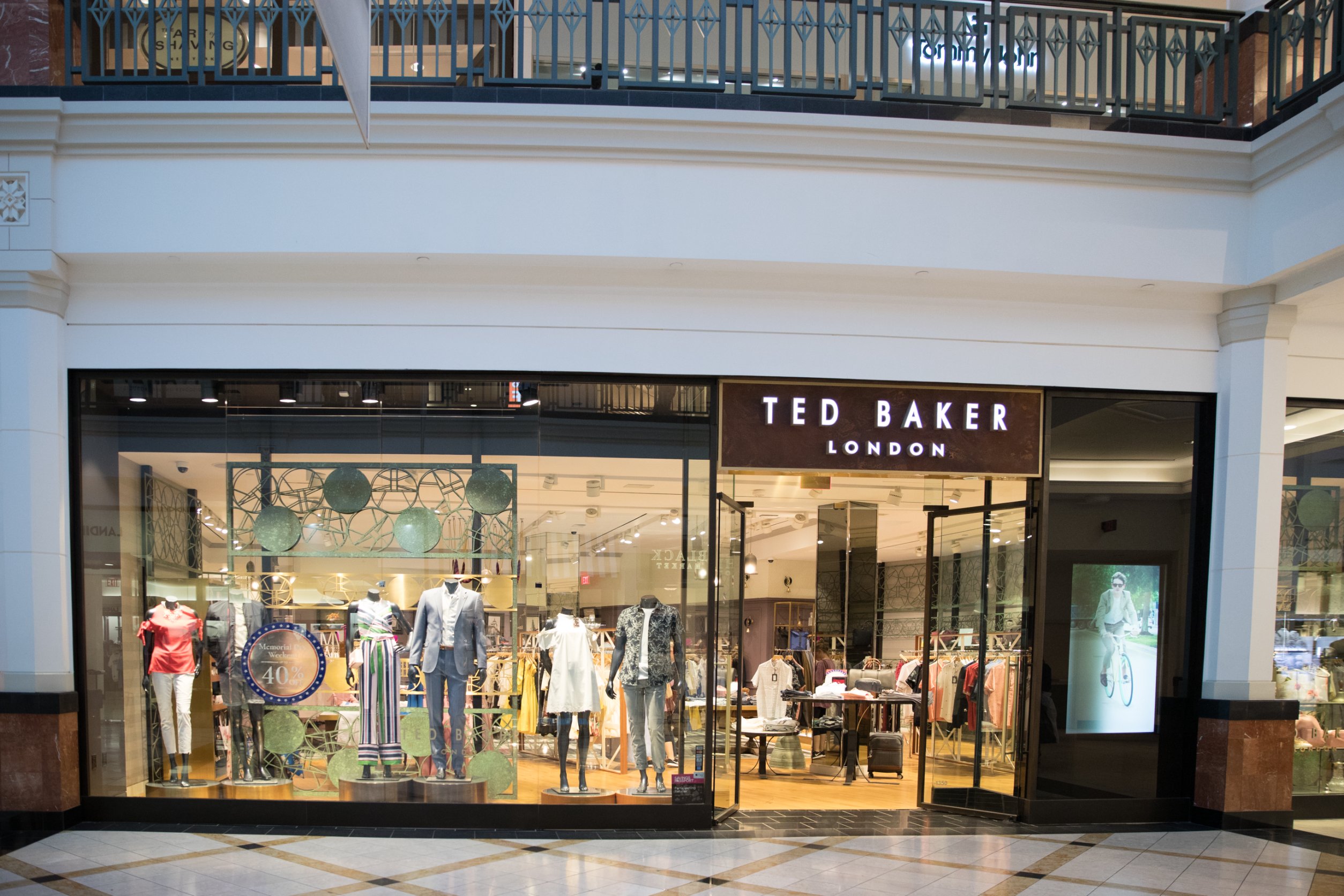Government
Ted Baker shares shot up 20% on Tuesday: here’s why
Shares of Ted Baker plc (LON: TED) are up nearly 20% on Tuesday after Authentic Brands Group LLC said it will buy the London-based fashion chain for £211…

Shares of Ted Baker plc (LON: TED) are up nearly 20% on Tuesday after Authentic Brands Group LLC said it will buy the London-based fashion chain for £211 million.
Ted Baker shares valued at an 18% premium
The 110 pence a share all-cash offer that Ted Baker agreed to this morning represents an 18% premium on its previous close. The high-street clothing retail company said:
The directors of Ted Baker consider the terms of the acquisition to be fair and reasonable. Accordingly, the directors intend unanimously to recommend that Ted Baker shareholders vote in favour.
Interestingly, however, Sycamore was willing to pay as much as £254 million for Ted Baker in March – a bid that the luxury brand rejected citing “undervaluation”.
Despite the retail news on Tuesday, Ted Baker shares are still down roughly 30% versus their year-to-date high.
What’s next for Ted Baker once the deal closes?
Upon completion of the transaction expected in the final quarter of 2022, ABG will split “TED” into an intellectual property holding company and operating entities (one or more) that will manage its stores, eCommerce and wholesale business. Authentic Brands Group said:
ABG believes that Ted Baker is better suited to private ownership, as this will facilitate a restructuring of the business in order to maximise its future potential [and] to enhance its revenue and profitability.
Ted Baker had been struggling with regaining investors’ confidence after founder Ray Kelvin resigned in 2019 on allegations of misconduct. A pandemic-driven hit over the past two years made things even worse.
In its latest reported quarter, retail revenue was still down 32% versus pre-COVID.
The post Ted Baker shares shot up 20% on Tuesday: here’s why appeared first on Invezz.
pence pandemicInternational
The Digest #194
Poor Charlie’s Almanack, Ben Graham, GAAP accounting, John Templeton, AI dystopia, Inflation, Bloomstran on Berkshire, Intuitive Surgical, The lessons…

Poor Charlie’s Almanack
Poor Charlie’s Almanack: The Essential Wit and Wisdom of Charles T. Munger was first published in 2005 as a “coffee table” style book. It was beautifully presented but came with a high price tag. It was also heavy, somewhat unwieldy to read, and not very portable. The book’s format and price probably limited its reach.
Stripe Press published a new edition of the book shortly after Mr. Munger died last year at the age of ninety-nine. Amazon and other vendors instantly sold all available inventory. After waiting for three months, I finally received my copy last week.
Peter Kaufman is the editor of all editions of the book and I suspect that his main goal two decades ago was to honor Charlie Munger’s wisdom in a format that was not expected to “go viral.” In 2005, Charlie Munger was well known in the Berkshire Hathaway shareholder community and in the value investing world, but he was not as prominent as he became during his final decade. The clear purpose of the new edition is to disseminate his ideas as widely as possible.
The new edition is abridged to reduce repetitive content and I will withhold judgment about the wisdom of this abridgment until I finish reading the book. Since the heart of the book is comprised of speeches given by Charlie Munger, there are definitely cases where the same ideas are presented again and again.
Great books can be read many times while remaining highly relevant. I found this to be the case when I reread Charlie Munger’s Harvard School commencement address delivered in June 1986 when his youngest son was among the graduates. In the speech, Mr. Munger “inverts” the typical advice delivered in such speeches by explaining how the graduates should go about guaranteeing a life of failure and misery through time-tested strategies such as ingesting drugs and indulging in envy and resentment.
I am not sure how many graduates were convinced by Charlie Munger on that early summer day, but I suspect that most of them remember the speech because it was so unconventional. In contrast, I have no recollection of the commencement addresses when I graduated from high school or college, or even who the speaker was.
Articles
A Memorial for Charlie Munger by John Harvey Taylor, March 12, 2024. This is a brief account of a recent memorial service for Charlie Munger at Harvard-Westlake School. “We learned Sunday that someone once asked if he knew how to play the piano. ‘I don’t know,’ he said. ‘I’ve never tried.’ Yet he tried and finished so much in his century. Imagine what he is making of eternity.” (Episcopal Diocese of Los Angeles)
Benjamin Graham: Big Moments on the Way to Big Earnings, March 2024. Ben Graham’s granddaughter reflects on the challenges Graham experienced when he applied for college. “Most graduating seniors make their college plans in advance, but Ben Graham had no money for tuition. All through the long days of arduous farm labor, my grandfather dreamed of winning a Pulitzer Scholarship.” (Beyond Ben Graham)
Graham’s “Unpopular Large Caps” Part 2: Thoughts on Diversification by John Huber, March 19, 2024. “I would segment these ideas into two groups: core operating investments and bargain assets. In the former, you want to be very selective in picking a relatively small number of companies you intend to own for the long term. In the latter, you’d want to think like the insurance underwriter, buying as many as you can to ensure that the law of large numbers is on your side.” (Base Hit Investing)
Warren Buffett Minds the GAAP by Donald E. Graham, March 13, 2024. “I have a challenge for the FASB and the SEC: If you believe today’s accounting rules present a clearer picture of Berkshire’s results, put it to a test. Ask Berkshire’s shareholders if they prefer the present method of reporting earnings over the status quo ante. I don’t believe a single informed shareholder would say so. The rule is confusing and uninformative.” (WSJ)
- Berkshire Hathaway’s Distorted Quarterly Results, August 7, 2022. “Berkshire’s net income figure has been totally useless for analytical purposes since 2018. This is true on an annual basis and even more true on a quarterly basis.” (The Rational Walk)
Sir John Templeton: The Gentleman Bargain Hunter by Kingswell, March 12, 2024. “Templeton, who passed away in 2008, arrived on the investing scene with a series of uber-profitable contrarian bets in the early days of World War II — and continued to outwit Mr. Market with maddening consistency for the next several decades.” (Kingswell)
They Praised AI at SXSW—and the Audience Started Booing by Ted Gioia, March 19, 2024. Many recent innovations seem to have a dystopian aura. Apparently, this sentiment is not restricted to the usual luddites (old men shouting at clouds) but is shared by some of the attendees of SXSW. What seems cool to tech bros in Silicon Valley might not seem so cool to those outside tech culture. (The Honest Broker)
We Still Don’t Believe How Much Things Cost by Rachel Wolfe and Rachel Louise Ensign, March 12, 2024. People tend to focus on the aggregate amount of inflation over the past few years and interpreted transitory to mean that price spikes would reverse. Of course, politicians and economists only meant that the rate of inflation would decrease, not that prices would ever return to pre-pandemic levels. (WSJ)
My 2023 Apple Report Card by John Gruber, March 18, 2024. A solid report card overall from a widely read technology blog. (Daring Fireball)
Podcasts
Christopher Bloomstran on Buffett, Berkshire, Munger, and China, March 19, 2024. 1 hour, 1 minute. Video. Also be sure to check out the latest Semper Augustus client letter which has a lengthy section on Berkshire Hathaway. (Value After Hours)
Renaissance Technologies, March 18, 2024. 3 hours, 10 minutes. Notes. “Renaissance Technologies is the best performing investment firm of all time. And yet no one at RenTec would consider themselves an ‘investor’, at least in any traditional sense of the word. It’d rather be more accurate to call them scientists — scientists who’ve discovered a system of math, computers and artificial intelligence that has evolved into the greatest money making machine the world has ever seen.” (Acquired)
- Review of The Man Who Solved the Market, December 28, 2019 (Rational Walk)
Intuitive Surgical: Robotic Precision, March 20, 2024. 1 hour, 6 minutes. Transcript. “Intuitive creates robotic products to assist minimally invasive surgeries. Its Da Vinci system is a pioneer in this area as it increases the efficiency & accuracy of surgery and reduces the burden on the surgeons themselves.” (Business Breakdowns)
The Lessons of History (Will & Ariel Durant), March 18, 2023. 53 minutes. Notes. “In every age men have been dishonest and governments have been corrupt.” (Founders)
A Classicist Believes that Homer Directly Dictated the Iliad, and Was Also an Excellent Horseman, March 14, 2024. 53 minutes. “The Iliad is the world’s greatest epic poem—heroic battle and divine fate set against the Trojan War. Its beauty and profound bleakness are intensely moving, but great questions remain: Where, how, and when was it composed and why does it endure?” (History Unplugged)
Triumph of Achilles
Copyright, Disclosures, and Privacy Information
Nothing in this article constitutes investment advice and all content is subject to the copyright and disclaimer policy of The Rational Walk LLC. The Rational Walk is a participant in the Amazon Services LLC Associates Program, an affiliate advertising program designed to provide a means for sites to earn advertising fees by advertising and linking to Amazon.com.
china pandemicInternational
Major airline learns its Chapter 11 bankruptcy fate
The airline industry has suffered since the covid pandemic changed how and when people travel.

The covid pandemic dealt multiple blows to the airline industry. The first hit was simply that air travel largely went away for over a year, and international travel was hit even harder.
Airlines were barely flying and the planes that did take off had very few passengers. That did not mean that expenses stopped. Airlines still had to pay their employees and keep their fleet in working order.
Popular clothing retailer shuts down all its stores unexpectedly
Related: Popular clothing retailer shuts down all its stores unexpectedly
Basically, it was a period where a lot of money went out, but very little came in. That led to many airlines increasing their debt load at high interest rates while they put off every possible expense.
The second hit came when the impact of the pandemic gradually receded. People had learned that some travel that once seemed essential maybe wasn't.
A lot of companies cut back on business travel while international routes were slower to come back in any way. Losing business travelers who often paid for seats in Business or First Class robbed airlines — companies that desperately needed cash — of some of their best customers.
It's not that people no longer fly, but some in-person trips have become Zoom meetings, and many companies have cut back on trade shows, in-person meetings, and other events.
That situation has hit some airlines harder than others. It pushed one leading global airline into bankruptcy and the company has just learned whether U.S. courts have successfully approved its Chapter 11 filing.
Image source: Shutterstock
SAS shared its Chapter 11 bankruptcy process
While many Americans don't know Scandinavian Airline SAS, it's a major global carrier. The company shared its mission on its website.
"Aviation is a vital part of Scandinavian infrastructure. We maintain the highest frequency of departures to and from Scandinavia and connect smaller regional airports with larger hubs. As part of Star Alliance, we fly our customers to 1300 destinations worldwide."
SAS does fly to a number of U.S. destinations, and its Chapter 11 bankruptcy was filed in an American court.
"The chapter 11 process is a legal process conducted under the supervision of the U.S. federal court system, which many large international airlines based outside of the U.S. have successfully used over the years to reduce their costs and complete financial restructurings," the company shared on its website.
It has been a long bankruptcy process as SAS first filed in July of 2022. The company has tried to reassure passengers and potential passengers that it had the money needed to keep operating.
"SAS’ operations and flight schedule are unaffected by the chapter 11 filing, and SAS will continue to serve its customers as normal. Importantly, we expect to have sufficient liquidity to support our business and meet our obligations going forward. SAS has obtained $700 million in Debtor-in-Possession (DIP) financing which provides SAS with a strong financial position to fund our operations throughout our restructuring process in the U.S.," the airline added.
SAS gets a Chapter 11 answer
SAS has received approval from U.S. Bankruptcy Judge Michael Wiles of the New York Bankruptcy Court to move forward with a plan that gives it $1.2 billion in new funding from a group that included the Danish government.
"The winning bidder consortium consists of Castlelake, L.P., onbehalf of certain funds or affiliates, Air France-KLM S.A., and Lind Invest ApS, together with the Danish state," the airline shared on its website.
Junior creditors will receive a mix of credit and equity, totaling $350 million. SAS did not share how much of what the company originally owed was not repaid.
“The investment agreement that was approved by the court today is a key milestone in our SAS Forward plan, and it shows that our new investors believe in SAS and our potential to remain at the forefront of the airline industry for years to come" CEO Anko van der Werff shared.
"The restructuring will result in the cancellation of SAS equity, with no payments to existing shareholders," Reuters reported.
bankruptcy pandemic interest rates franceInternational
John Lewis relies too heavily on its heritage – here’s what it could do instead
The company has returned to profit by making cuts, but there are things it could do to reinvent itself.

In a tricky economic climate, the British department store John Lewis has managed to deliver some good news. The retail partnership – owned by its 80,000 employees – posted pre-tax profits of £56 million after a £234 million loss the year before.
The positive announcement was somewhat tarnished by the fact that those employees (known as partners) would not receive a bonus for the second year in a row. There were also hints of job cuts.
But what more could this giant of UK retail, which also owns Waitrose supermarkets, do to endure its survival? Does its increasing reliance on grocery sales mean its own brand has become less valuable?
For over 160 years on the high street, John Lewis has worked hard on that brand. Its slogan (scrapped in 2022) about being “never knowingly undersold” was well known, it remains a trusted supplier of an extensive range of household hoods, rates highly for customer service, and runs Christmas TV adverts which have became a media event in themselves.
In doing all of those things, John Lewis seemed to be in a much better place than its rivals. BHS (founded in 1928) and Debenhams (1778) have disappeared from the high street. House of Fraser (1849) was taken over and has a much-reduced physical presence.
John Lewis’s nearest rival, Marks & Spencer (1884), is now doing well, but only after it underwent a fairly brutal restructuring which involved cutting thousands of jobs during the pandemic, closing 67 stores, and slashing its operations in France.
So John Lewis’s “brand heritage” – its history, tradition and pedigree – has worked pretty well for a pretty long time. But its recent return to profit was the combined effort of reinvesting and streamlining, according to some reports.
Also known as “trimming the fat” in the business world, the retailer’s streamlining endeavours consisted of cutting more than 1,500 jobs, and closing underperforming stores, such as the branch in Sheffield, which had served residents for nearly 80 years and was much mourned, including by my own mother-in-law.
It has also been reported that more job cuts are imminent, with up to 11,000 jobs to go in the next five years.
And perhaps these measures highlight some of the harsh realities of running a department store in the always-open and effortless world of online shopping. Maybe employees (even those considered partners, as under John Lewis’s employee-ownership model) have become expendable.
Maybe physical stores, where consumers go to explore and seek advice, have become expendable. Maybe all traditions are expendable when they are not commercially viable.
People first
Yet the world of retail is filled with examples of heritage brands reinventing themselves to stay relevant, buoyant and competitive.
John Lewis will need to do the same if it wants to retain its legacy on the British high street. And it could do worse than taking a leaf out of Waitrose’s playbook.
For the company’s return to profit was largely due to the buoyant sales generated by Waitrose supermarkets, which increased by 4%. The department store business meanwhile, suffered a 2% fall.
Part of Waitrose’s success comes from providing a sense of indulgence and enjoyment – including healthy food – through carefully curated and often locally sourced products. It works closely with local farmers, supports regional suppliers (an approach that has also contributed to M&S’s success), and reinvests in stores and product offers.
Essentially, as part of UK’s grocery sector, Waitrose extended its partnership ethos to include people and groups beyond the shop walls – to build a “local retail ecosystem” that promotes and leverages a community spirit around their stores.

John Lewis department stores could try and do something similar. They could focus more on products that help customers live healthier and more active lives, and which are relevant to their interests. They could sell products created by local small businesses, and make a determined approach to be a supportive presence in the regions they serve.
Research suggests that heritage brands benefit from having a moral standing – when they show they care about the people they make money from, the local communities they operate in, and the people they employ.
So perhaps John Lewis should make moral values a part of its evolving heritage. It needs to show it cares not just for the people who work for the company directly, but also the people on whom it relies for success – the customers – and people it can build new relationships with. All of them could prove critical to its future success.
Kokho Jason Sit is affiliated with the Chartered Institute of Marketing.
recovery pandemic uk france-

 Spread & Containment1 week ago
Spread & Containment1 week agoIFM’s Hat Trick and Reflections On Option-To-Buy M&A
-

 Uncategorized4 weeks ago
Uncategorized4 weeks agoAll Of The Elements Are In Place For An Economic Crisis Of Staggering Proportions
-

 International2 weeks ago
International2 weeks agoEyePoint poaches medical chief from Apellis; Sandoz CFO, longtime BioNTech exec to retire
-

 Uncategorized1 month ago
Uncategorized1 month agoCalifornia Counties Could Be Forced To Pay $300 Million To Cover COVID-Era Program
-

 Uncategorized4 weeks ago
Uncategorized4 weeks agoApparel Retailer Express Moving Toward Bankruptcy
-

 Uncategorized1 month ago
Uncategorized1 month agoIndustrial Production Decreased 0.1% in January
-

 International2 weeks ago
International2 weeks agoWalmart launches clever answer to Target’s new membership program
-

 Uncategorized1 month ago
Uncategorized1 month agoRFK Jr: The Wuhan Cover-Up & The Rise Of The Biowarfare-Industrial Complex





















